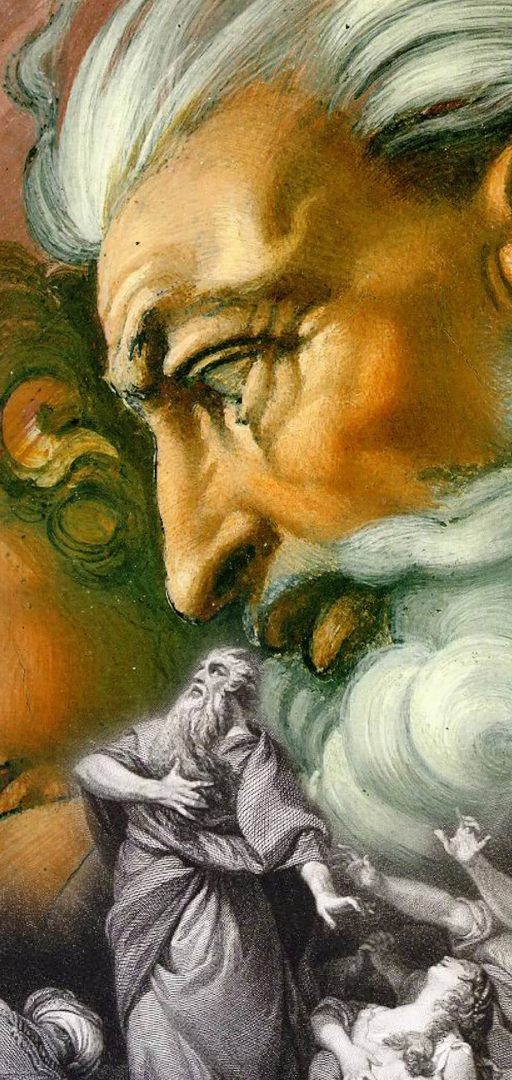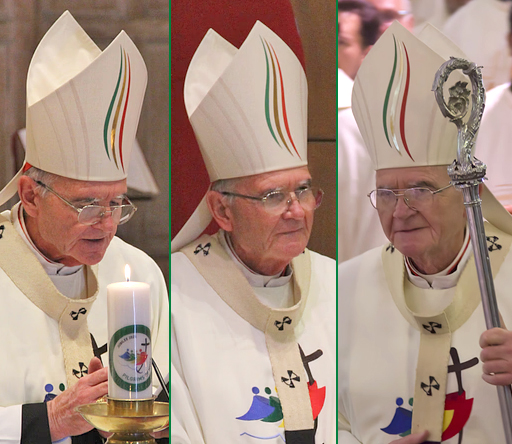What is Jubilee

What is Jubilee
The concept of Jubilee, a time of pardon, liberation, and renewal, resonates deeply within the human spirit. It speaks to our innate longing for a fresh start, a chance to break free from the burdens of the past. While many might associate the term with secular celebrations, its roots lie firmly within the Old Testament and have been embraced and transformed by the Catholic Church into a powerful spiritual experience. So, what exactly is a Jubilee, and what does it mean for us as Catholics, particularly here in South Africa?
Origins in the Old Testament
The idea of Jubilee originates in the Book of Leviticus (Chapter 25). God instructed the Israelites to observe a special year of rest and restoration every 50 years. This “Year of Jubilee” was marked by several significant events: the freeing of slaves, the return of land to its original owners, and a general cessation of agricultural work. It was a time to reset society, to restore balance and justice, and to remember that all blessings ultimately come from God.
Think of it: every half-century, debts were wiped clean, social hierarchies were temporarily levelled, and the people were reminded of their fundamental equality before God. It was a radical concept, one that challenged the prevailing social and economic norms of the time. Imagine the impact of this in our own South African context, with our history of land dispossession and inequality. The Jubilee year in the Old Testament speaks powerfully to our own need for healing and reconciliation.


The Catholic Jubilee Year
The Catholic Church adopted the concept of Jubilee, imbuing it with a specifically Christian meaning. While the Old Testament Jubilee focused on material and social restoration, the Church’s Jubilee emphasizes spiritual renewal and reconciliation with God. The first “Holy Year” was proclaimed by Pope Boniface VIII in 1300. Initially, it was celebrated every 100 years, but the interval was later shortened to every 50 years and then to the current practice of every 25 years, with the option of extraordinary Jubilees proclaimed by the Pope for particular occasions.
An interesting fact: while we associate Jubilees with Rome, the practice of granting indulgences for pilgrimages to specific churches predates the formal institution of the Holy Year. This shows that the core ideas of penance, forgiveness, and pilgrimage were already present in the Church’s life.
Why does the Church have Jubilee Years? Simply put, it’s a powerful invitation to conversion, a call to deepen our relationship with God and our neighbour. It’s a time to acknowledge our failings, to seek forgiveness, and to commit to living a more authentic Christian life. It’s a moment of grace offered to the entire Church, a chance to experience God’s mercy in a profound way.
Underlying Principles
While the Jubilee year, as outlined in Leviticus, may not be observed in the same way today, its underlying principles remain deeply relevant.
Forgiveness and Reconciliation: The Jubilee year reminds us of the importance of forgiveness, both personal and societal. We are called to forgive those who have wronged us, to let go of resentment and bitterness, and to seek reconciliation with those with whom we are in conflict.
Justice and Solidarity with the Poor: In a world marked by increasing inequality, the Jubilee calls us to advocate for social justice and to stand in solidarity with the poor and marginalized. This can take many forms, such as supporting organizations that work for economic justice, advocating for fair wages and working conditions, and engaging in acts of service to those in need.
Environmental Stewardship: The Jubilee emphasis on the Sabbath rest for the land has a profound ecological dimension. It reminds us that we are stewards of God’s creation and that we have a responsibility to care for the earth and its resources. This includes reducing our environmental impact, supporting sustainable practices, and advocating for policies that protect our planet.
Spiritual Renewal: The Jubilee year was a time of spiritual renewal and reflection. It provided an opportunity for individuals and communities to return to God and to deepen their relationship with him. In our own lives, we can cultivate a deeper spiritual life through prayer, meditation, and engagement with the Scriptures.
A Personal Reflection
We should realize that true freedom is not simply the absence of external constraints, but also the liberation from internal bondage. This includes freedom from the grip of sin, the fear of scarcity, and the pursuit of material possessions.
The Jubilee year, in its essence, is a call to embrace a life of simplicity, generosity, and love. It is a reminder that true wealth lies not in the accumulation of material possessions, but in the richness of our relationships with God and with others.


Reflections and Actions During a Jubilee
A Jubilee Year is not just a passive observation. It calls for active participation and engagement. It’s a time for:
- Conversion and Repentance: Examining our consciences, acknowledging our sins, and seeking God’s forgiveness through the Sacrament of Reconciliation.
- Renewal of Faith: Deepening our understanding of the faith through prayer, Scripture reading, and study.
- Acts of Charity and Mercy: Reaching out to those in need, performing works of mercy, and promoting justice and peace.
These are not merely suggestions; they are the very heart of the Jubilee experience.
Jubilee and South Africa
How can we, as South African Catholics, truly embrace the spirit of Jubilee? We can reflect on our own journey as a nation, marked by both great triumphs and deep wounds. We can commit to working for reconciliation and healing within our communities. We can reach out to the marginalized and vulnerable, embodying the mercy and compassion of Christ.
The Jubilee is not just a historical event or a ritual; it’s a call to action, a call to conversion, a call to live our faith more fully. It’s a time of grace, a time of renewal, a time to experience the boundless mercy of God. Let us embrace this opportunity with open hearts and minds, allowing the spirit of Jubilee to transform us and our world.

Characteristics of Jubilee
Several key elements characterize a Jubilee Year
Pilgrimage
Pilgrimages have always been an important part of the Christian tradition. During a Jubilee, pilgrimages, especially to Rome, take on a special significance. They symbolize our journey of faith towards God. For South Africans, a pilgrimage to Rome might be a once-in-a-lifetime opportunity, but even local pilgrimages to significant shrines can be a powerful experience of faith.
Holy Doors
The opening of the Holy Door in the major basilicas of Rome (St. Peter’s, St. John Lateran, St. Mary Major, and St. Paul Outside the Walls) is a central ritual of the Jubilee. Passing through the Holy Door symbolizes entering into a new relationship with Christ, leaving behind the old life of sin and embracing the new life of grace.
Reconciliation
The Sacrament of Reconciliation (Confession) is central to the Jubilee experience. It’s a time to experience God’s boundless mercy and forgiveness.
Prayer and Liturgy
Jubilee Years are marked by special liturgies and prayer services, inviting us to deepen our communion with God and with the Church.
Profession of Faith
Renewing our baptismal promises and making a public profession of faith are important aspects of the Jubilee.
Indulgences
A plenary indulgence is granted during a Jubilee to those who fulfil the prescribed conditions (sacramental confession, Eucharistic communion, prayer for the Pope’s intentions, and performing the designated works, such as a pilgrimage or visiting a designated church). An indulgence is a remission before God of the temporal punishment due to sins whose guilt has already been forgiven. It’s important to understand that indulgences are not a “get-out-of-jail-free card” but rather a spiritual aid to help us grow in holiness and detach from sin.
Further Information
- The Vatican Website: www.vatican.va (Search for “Jubilee” for official documents and information)
- Catechism of the Catholic Church: www.vatican.va/archive/ENG0015/__P126.HTM (See paragraphs 1471-1479 on indulgences)
This information should provide a solid foundation for understanding the significance of Jubilee. It is hoped that this article will inspire and encourage a deeper appreciation for this important tradition within our Catholic Church.
